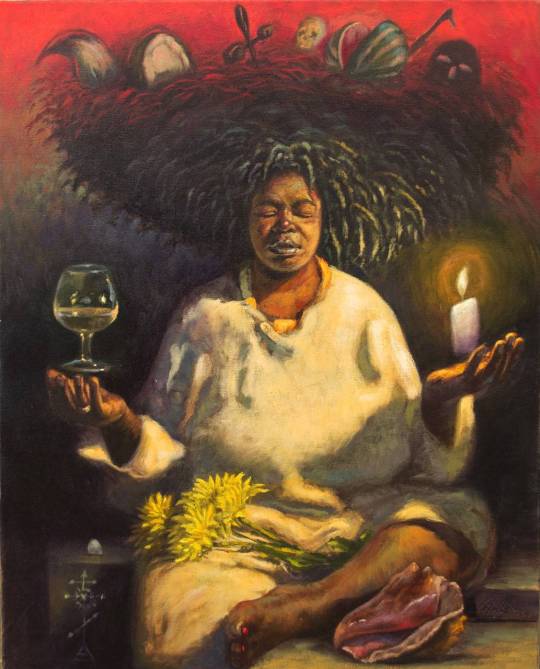Text
Reading list for Afro-Herbalism:
A Healing Grove: African Tree Remedies and Rituals for the Body and Spirit by Stephanie Rose Bird
Affrilachia: Poems by Frank X Walker
African American Medicine in Washington, D.C.: Healing the Capital During the Civil War Era by Heather Butts
African American Midwifery in the South: Dialogues of Birth, Race, and Memory by Gertrude Jacinta Fraser
African American Slave Medicine: Herbal and Non-Herbal Treatments by Herbert Covey
African Ethnobotany in the Americas edited by Robert Voeks and John Rashford
Africanisms in the Gullah Dialect by Lorenzo Dow Turner
Africans and Native Americans: The Language of Race and the Evolution of Red-Black Peoples by Jack Forbes
African Medicine: A Complete Guide to Yoruba Healing Science and African Herbal Remedies by Dr. Tariq M. Sawandi, PhD
Afro-Vegan: Farm-Fresh, African, Caribbean, and Southern Flavors Remixed by Bryant Terry
Barracoon: The Story of the Last “Black Cargo” by Zora Neale Hurston
Big Mama’s Back in the Kitchen by Charlene Johnson
Big Mama’s Old Black Pot by Ethel Dixon
Black Belief: Folk Beliefs of Blacks in America and West Africa by Henry H. Mitchell
Black Diamonds, Vol. 1 No. 1 and Vol. 1 Nos. 2–3 edited by Edward J. Cabbell
Black Faces, White Spaces: Reimagining the Relationship of African Americans to the Great Outdoors by Carolyn Finney
Black Food Geographies: Race, Self-Reliance, and Food Access in Washington, D.C. by Ashanté M. Reese
Black Indian Slave Narratives edited by Patrick Minges
Black Magic: Religion and the African American Conjuring Tradition by Yvonne P. Chireau
Black Nature: Four Centuries of African American Nature Poetry edited by Camille T. Dungy
Blacks in Appalachia edited by William Turner and Edward J. Cabbell
Caribbean Vegan: Meat-Free, Egg-Free, Dairy-Free Authentic Island Cuisine for Every Occasion by Taymer Mason
Dreams of Africa in Alabama: The Slave Ship Clotilda and the Story of the Last Africans Brought to America by Sylviane Diouf
Faith, Health, and Healing in African American Life by Emilie Townes and Stephanie Y. Mitchem
Farming While Black: Soul Fire Farm’s Practical Guide to Liberation on the Land by Leah Penniman
Folk Wisdom and Mother Wit: John Lee – An African American Herbal Healer by John Lee and Arvilla Payne-Jackson
Four Seasons of Mojo: An Herbal Guide to Natural Living by Stephanie Rose Bird
Freedom Farmers: Agricultural Resistance and the Black Freedom Movement by Monica White
Fruits of the Harvest: Recipes to Celebrate Kwanzaa and Other Holidays by Eric Copage
George Washington Carver by Tonya Bolden
George Washington Carver: In His Own Words edited by Gary Kremer
God, Dr. Buzzard, and the Bolito Man: A Saltwater Geechee Talks About Life on Sapelo Island, Georgia by Cornelia Bailey
Gone Home: Race and Roots through Appalachia by Karida Brown
Ethno-Botany of the Black Americans by William Ed Grime
Gullah Cuisine: By Land and by Sea by Charlotte Jenkins and William Baldwin
Gullah Culture in America by Emory Shaw Campbell and Wilbur Cross
Gullah/Geechee: Africa’s Seeds in the Winds of the Diaspora-St. Helena’s Serenity by Queen Quet Marquetta Goodwine
High on the Hog: A Culinary Journey from Africa to America by Jessica Harris and Maya Angelou
Homecoming: The Story of African-American Farmers by Charlene Gilbert
Hoodoo Medicine: Gullah Herbal Remedies by Faith Mitchell
Jambalaya: The Natural Woman’s Book of Personal Charms and Practical Rituals by Luisah Teish
Just Medicine: A Cure for Racial Inequality in American Health Care by Dayna Bowen Matthew
Leaves of Green: A Handbook of Herbal Remedies by Maude E. Scott
Like a Weaving: References and Resources on Black Appalachians by Edward J. Cabbell
Listen to Me Good: The Story of an Alabama Midwife by Margaret Charles Smith and Linda Janet Holmes
Making Gullah: A History of Sapelo Islanders, Race, and the American Imagination by Melissa Cooper
Mandy’s Favorite Louisiana Recipes by Natalie V. Scott
Medical Apartheid: The Dark History of Medical Experimentation on Black Americans from Colonial Times to the Present by Harriet Washington
Mojo Workin’: The Old African American Hoodoo System by Katrina Hazzard-Donald
Motherwit: An Alabama Midwife’s Story by Onnie Lee Logan as told to Katherine Clark
My Bag Was Always Packed: The Life and Times of a Virginia Midwife by Claudine Curry Smith and Mildred Hopkins Baker Roberson
My Face Is Black Is True: Callie House and the Struggle for Ex-Slave Reparations by Mary Frances Berry
My Grandmother’s Hands: Racialized Trauma and the Pathway to Mending Our Hearts and Bodies by Resmaa Menakem
On Her Own Ground: The Life and Times of Madam C.J. Walker by A'Lelia Bundles
Papa Jim’s Herbal Magic Workbook by Papa Jim
Places for the Spirit: Traditional African American Gardens by Vaughn Sills (Photographer), Hilton Als (Foreword), Lowry Pei (Introduction)
Post Traumatic Slave Syndrome by Dr. Joy DeGruy
Rooted in the Earth: Reclaiming the African American Environmental Heritage by Diane Glave
Rufus Estes’ Good Things to Eat: The First Cookbook by an African-American Chef by Rufus Estes
Secret Doctors: Ethnomedicine of African Americans by Wonda Fontenot
Sex, Sickness, and Slavery: Illness in the Antebellum South by Marli Weiner with Mayzie Hough
Slavery’s Exiles: The Story of the American Maroons by Sylviane Diouf
Soul Food: The Surprising Story of an American Cuisine, One Plate at a Time by Adrian Miller
Spirituality and the Black Helping Tradition in Social Work by Elmer P. Martin Jr. and Joanne Mitchell Martin
Sticks, Stones, Roots & Bones: Hoodoo, Mojo & Conjuring with Herbs by Stephanie Rose Bird
The African-American Heritage Cookbook: Traditional Recipes and Fond Remembrances from Alabama’s Renowned Tuskegee Institute by Carolyn Quick Tillery
The Black Family Reunion Cookbook (Recipes and Food Memories from the National Council of Negro Women) edited by Libby Clark
The Conjure Woman and Other Conjure Tales by Charles Chesnutt
The Home Place: Memoirs of a Colored Man’s Love Affair with Nature by J. Drew Lanham
The Jemima Code: Two Centuries of African American Cookbooks by Toni Tipton-Martin
The President’s Kitchen Cabinet: The Story of the African Americans Who Have Fed Our First Families, from the Washingtons to the Obamas by Adrian Miller
The Taste of Country Cooking: The 30th Anniversary Edition of a Great Classic Southern Cookbook by Edna Lewis
The Tuskegee Syphilis Study: An Insiders’ Account of the Shocking Medical Experiment Conducted by Government Doctors Against African American Men by Fred D. Gray
Trace: Memory, History, Race, and the American Landscape by Lauret E. Savoy
Vegan Soul Kitchen: Fresh, Healthy, and Creative African-American Cuisine by Bryant Terry
Vibration Cooking: Or, The Travel Notes of a Geechee Girl by Vertamae Smart-Grosvenor
Voodoo and Hoodoo: The Craft as Revealed by Traditional Practitioners by Jim Haskins
When Roots Die: Endangered Traditions on the Sea Islands by Patricia Jones-Jackson
Working Conjure: A Guide to Hoodoo Folk Magic by Hoodoo Sen Moise
Working the Roots: Over 400 Years of Traditional African American Healing by Michelle Lee
Wurkn Dem Rootz: Ancestral Hoodoo by Medicine Man
Zora Neale Hurston: Folklore, Memoirs, and Other Writings: Mules and Men, Tell My Horse, Dust Tracks on a Road, Selected Articles by Zora Neale Hurston
The Ways of Herbalism in the African World with Olatokunboh Obasi MSc, RH (webinar via The American Herbalists Guild)
1K notes
·
View notes
Text
“HoOdOo DoEsN’t HaVe HoLiDaYs”
Actually, the Hoodoo tradition has several holidays. Some are old, some are newer. Some are syncretized, some aren’t. Here’s a link to information on the Hoodoo celebration of All Saints Day, which is syncretized with the common Christian holiday, and observed every year on November 1st. Other than the name, there’s nothing Christian about it. It was used as a way for our ancestors to hide their practice in plain sight. This is a day to celebrate and honor our dead folk and thank them for their sacrifice. As a reminder, observance of the Hoodoo specific rituals of All Saints Day, and the religion of Hoodoo in general is for BLACK PEOPLE ONLY.
The link is on the website of the Chesapeake Conjure Society, which is a fantastic Hoodoo resource that is mainly focused on the Hoodoo traditions of the Chesapeake region of what is now known as the United States. I encourage you to check out the rest of the site, you won’t regret it.
https://hoodoosociety.com/allsaints
163 notes
·
View notes
Photo
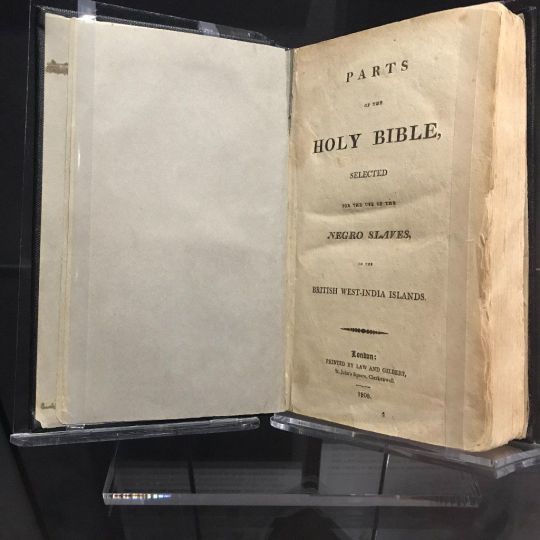
“The Slave Bible” is on display at the Museum of the Bible in Washington
110 notes
·
View notes
Photo
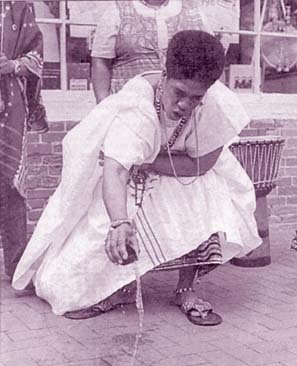
Offering Alcohol for the Ancestors
The choice of liquid depends on the nature of the libation, prayer and what your intention is when invoking/awakening the Ancestors.
Water is for cooling and healing and creating or reconciling relationships.
Liquor is fiery and is usually used to rouse, cement, ignite, protect and perform strong purification.
Wine is mid-way between the two and is good for friendly relations, creating a sweet bond between man and spirit.
2K notes
·
View notes
Photo
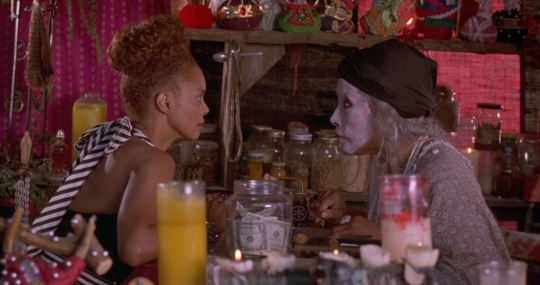
Eve’s Bayou (1997)
Mozelle Batiste Delacroix gets a shocking reading from the market fortune teller Elzora.
239 notes
·
View notes
Text
Katherine Dunham and her dance company in the film Casbah (1948)
Dunham was an African-American dancer, choreographer, author, educator, anthropologist, and social activist. Dunham had one of the most successful dance careers in African-American and European theater of the 20th century, and directed her own dance company for many years. She has been called the "matriarch and queen mother of black dance."
664 notes
·
View notes
Photo
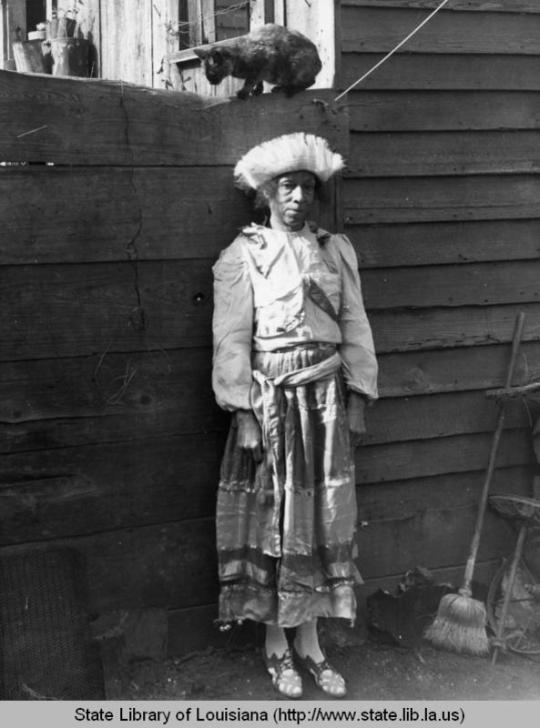
A photo taken of the then well-known Voodoo queen Lala of New Orleans, Louisiana in the 1930s.
381 notes
·
View notes
Photo
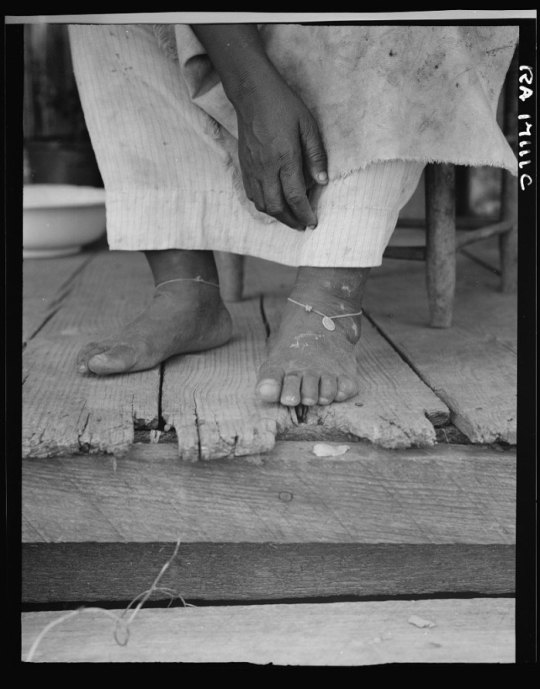
A 57-year-old female sharecropper utilizes the folk remedy of tying dimes around here ankles in an effort to prevent headaches. Dorothea Lange/Library of Congress
324 notes
·
View notes
Photo
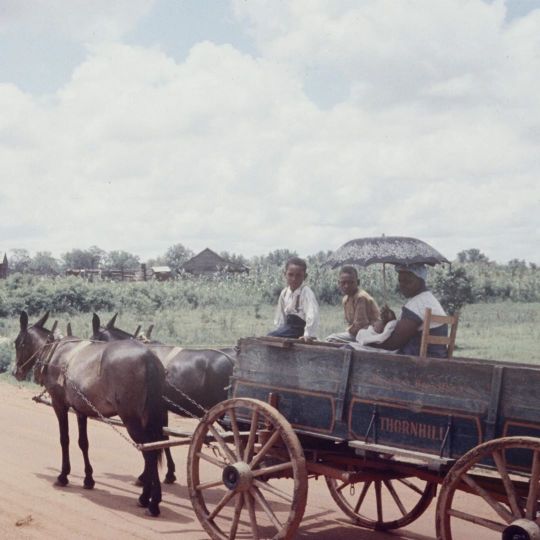
Edisto Island, South Carolina. photography by Walter Sanders
248 notes
·
View notes
Text
How Black women should navigate the permanent underclass
youtube
1 note
·
View note
Text
What Black women should not be involved in
youtube
3 notes
·
View notes
Text
Ancestral Exploration:
Imagine a conversation with your ancestors. What wisdom, strength, or struggles do you feel they pass on to you?
46 notes
·
View notes
Text

African origins of decoration in the Americas
Other Bantu-Kongo practices present in Hoodoo are the use of conjure canes. Conjure canes in the United States are decorated with specific objects to conjure specific results and conjure spirits. This practice was brought to the United States during the transatlantic slave trade from Central Africa. Several conjure canes are used today in some African American families. In Central Africa among the Bantu-Kongo, ritual healers are called banganga and use ritual staffs (now called conjure canes in Hoodoo). These ritual staffs of the banganga conjure spirits and healing for people. The banganga healers in Central Africa became the conjure doctors and herbal healers in African American communities in the United States.
The Harn Museum of Art at the University of Florida collaborated with other world museums to compare African American conjure canes with ritual staffs from Central Africa and found similarities between the two, and other aspects of African American culture that originated from Bantu-Kongo people.

Bakongo spiritual protections influenced African American yard decorations. In Central Africa, Bantu-Kongo people decorated their yards and entrances to doorways with baskets and broken shiny items to protect from evil spirits and thieves. This practice is the origin of the bottle tree in Hoodoo. Throughout the American South in African American neighborhoods, there are some houses that have bottle trees and baskets placed at entrances to doorways for spiritual protection against conjure and evil spirits. An African American man in North Carolina buried a jar under the steps with water and string in it for protection. If someone conjured him the string would turn into a snake. The man interviewed called it inkabera.
Bantu-Kongo burial practices by African Americans were found in Florida. Researchers noticed the similarities of grave sites of African Americans in Florida and those of the Bakongo people in Central Africa. Headstones with a T shape were seen in Black cemeteries and at grave sites in the Kongo region. The T shape headstone peculiar to black cemeteries in north Florida during the 1920s through the 1950s corresponds to the lower half of the Kongo cosmogram that symbolizes the realm of the ancestors and spiritual power. In Bantu-Kongo spirituality the spirit realm is in the color white. African Americans decorated the graves of their family members with white items such as white conch seashells. Seashells represent the watery divide located on the horizontal line of the Kongo cosmogram that is a boundary between the realm of the living and the realm of the dead. By placing seashells on graves, African Americans were creating a boundary (barrier) between the recently deceased and them, keeping the spirit in the realm of the dead below the Kongo cosmogram.
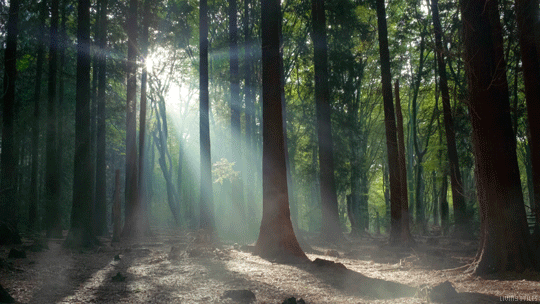
On top of graves in African American cemeteries continued beyond the 1950s, and was found in Archer, Florida. Researchers found other continued Bakongo burial practices in African cemeteries in Florida. In the Kongo region, Bakongo people placed broken objects on top of graves so the recently deceased can travel to the land of the dead. The broken items symbolize the person's connection to the world of the living was broken by their death, and they need to return to the realm of the dead. This practice was found in African American cemeteries in Florida and among the Gullah Geechee people in the Sea Islands in the United States.
The conjure practices of African Americans in Georgia was influenced by Bakongo and other West African ethnic groups when a slave ship the Wanderer illegally imported 409 enslaved Africans to Jekyll Island, Georgia in 1858.
Historians from Southern Illinois University in the Africana Studies Department documented about 20 title words from the Kikongo language are in the Gullah language. These title words indicate continued African traditions in hoodoo and conjure. The title words are spiritual in meaning. In Central Africa, spiritual priests and spiritual healers are called Nganga. In the South Carolina Lowcountry among Gullah people a male conjurer is called Nganga. Some Kikongo words have a "N" or "M" in the beginning of the word. However, when Bantu-Kongo people were enslaved in South Carolina the letters N and M were dropped from some of the title names. For example, in Central Africa the word to refer to spiritual mothers is Mama Mbondo. In the South Carolina Lowcountry in African American communities the word for a spiritual mother is Mama Bondo. In addition during slavery, it was documented there was a Kikongo speaking slave community in Charleston, South Carolina.
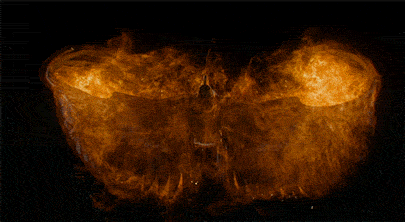
Dr. Robert Farris Thompson was a professor at Yale University and conducted academic research in Africa and the United States and traced Hoodoo's (African American conjure) origins to Central Africa's Bantu-Kongo people in his book Flash of the Spirit: African & Afro-American Art & Philosophy. Thompson was an African Art historian and found through his study of African Art the origins of African Americans' spiritual practices to certain regions in Africa. Former academic historian Albert J. Raboteau in his book, Slave Religion: The "Invisible Institution" in the Antebellum South, traced the origins of Hoodoo (conjure, rootwork) practices in the United States to West and Central Africa. These origins developed a slave culture in the United States that was social, spiritual, and religious. Professor Eddie Glaude at Princeton University defines Hoodoo as part of African-American religious life with practices influenced from Africa that fused with Christianity creating an African-American religious culture for liberation
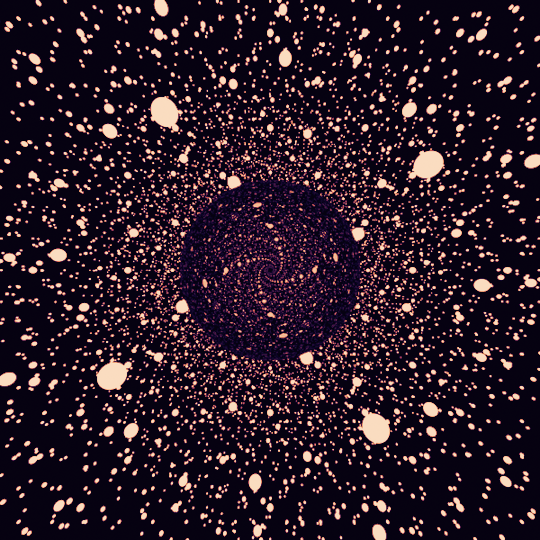
249 notes
·
View notes
Text
The Permanent underclass is coming for Black women.
youtube
What is the permanent underclass?
The underclass is the segment of the population that occupies the lowest possible position in a class hierarchy, below the core body of the working class. Black women in America will hear this and will probably dismiss it as another thing to focus on later. Another one of millions of warnings heard in the media. Yet another lecture that can be worried about in the distant future. But it can’t. In a matter of years, Black Americans will be a permanent underclass in the United States.
While Black women are statistically shown climbing up the ladder of wealth, as a collective, Black women are still on track to fail. The demographic will be placed in a position of society where social and financial mobility will be impossible. This is a place where Black American women have been before but this time no amount of hard work, higher education, or fighting the system will fix it. The permanent underclass is permanent.
How to avoid it?
As a collective, you can’t. As an individual you can take steps to ensure yourself and your daughters are as far away from perpetual poverty as possible. But it won’t be easy.
#1 Income
Black women are very proud of being the fastest growing group of business owners in America. This is a great feat, but unfortunately it won’t help. The vast majority of businesses being opened are not recession proof, let alone underclass proof. These businesses tend to be side hustles rather than profitable and growing organizations. Instead of beauty products, Black women will need to make the shift to STEM related fields and high earning, recession proof career paths. I personally believe most Black women thrive in careers such as healthcare and more creative tech careers. Same as the businesses, we can often hear the boasting of Black women being the most college educated in America. But again, we can see the income and social standing is not reflecting this higher education. Why? Besides Black women’s poor choice in male partners and negative culture indulgences, Black women have not kept up with turns in the economy and failed to adjust for the future. We unfortunately are held back by doing what’s familiar or comfortable, instead of breaking barriers or floating to careers that bring political influence and higher incomes. The best thing we have is that we are also one of the fastest growing groups of property owners and land, is a wealth building tool.
As one person, you should research what STEM career would fit your personality. How much schooling are you willing to go through to secure this future? Have you looked into the various free resources available to get into tech or medicine? Which jobs are not going to be replaced by AI?
Prepping and investing is one of the best ways to prepare for the upcoming economic depression. Buying gold, silver, and other assets that increase in value when the value of the dollar continues to decrease. Anyone that hasn’t started prepping now is already late. I personally started prepping around 2020 and the price of the items I got now has doubled or tripled. Buying toiletries, canned food, long lasting food like rice and beans, is the only way to ensure you have food in your belly when everyone else is scrapping together $20 for a piece of bread in the near future. It’s important to also prepare for the civil unrest and crime hikes that follow high prices and chaos. Everything you prep and collect should be protected by a firearm. The Black American woman’s way for hundreds of years has been to petition the government and protest when things go wrong but this will do absolutely nothing to stop you from sliding into the underclass. The normalcy bias everyone has in their brain conditions them to think everything will be fine and stay normal, this prevents people from acknowledging problems and taking proper steps to jump over hurdles. The growing Black femicide rate that’s also been largely ignored by Black women will be the biggest jump in crime in this country, and most Black women will be too late in their responses to this. Black women have been unwilling to protect themselves from the terrorist of their communities and mostly refuse to protect themselves financially. This is a guaranteed ticket to the underclass and being the biggest targets for criminals.
Unfortunately some Black women have allowed themselves to fall for distractions and social media propaganda to engage in discourse about celebrity gossip and marriage. Some of these women seem to think getting married and just having a “father in the home” will fix all the issues they have. The truth is, when Black women marry males who look like them, they lose wealth. Unless you are marrying a man of means in a community that actually has resources, your focus should not be on marriage or males. Dating and marriage is not all about money but you also have to worry about abuse and what values you want your children to learn. Even still, other people are not your heroes and your priority should be helping yourself first and other likeminded Black women. Depending on others is not an acceptable solution.
#2 Don’t let yourself be chained and dragged down
You can’t separate yourself from your demographic, but you can’t rely on other Black women to do better for you. If you are the only Black woman you know aware of what’s going on and taking proper steps, you can try to educate others but understand this journey will be lonely. You cannot control the actions of other Black women. As Edna Mode from the Incredibles would say, “No capes!” You have to burn the cape if you want to move forward as yourself. Not as a woman, Black person, or an American. Allowing your group or other groups to grab onto you is detrimental to not only your financial success, but also your safety and social mobility. Black women let their empathy for others and desire to be needed be their downfall and you should be mindful of not participating in this. You are the target for people in need, the one group people go to, knowing Black women have a history of putting the needs of others before their own. They need attention, clout, money, protection, or defense and you should provide none of that. Only providing for yourself, your daughter, and other likeminded Black women in your immediate circle is the proper way to move forward.
You have to do what you can as an individual, while being mindful that as a Black woman you are treated by others as a monolith. You can walk into an interview being perfect, and that could not stop a hiring manager from throwing every stereotype onto you and not giving you the job. But before dismissing your image or collective reputation as a factor in your finances and social mobility, understand your “community” can provide nothing to you. Has never and will never. The hospitals, jobs, first responders, grocery stores, banks, etc that you interact with are all owned by people who don’t look like you. To me, respectability politics is just a buzz word used to dismiss uncomfortable conversations and truths. But there’s nothing more uncomfortable than starving and having no resources in your reach.
#3 Work towards building YOUR own community, a real community this time
What do you do with this knowledge now that you know what’s coming? Do you get on the internet and complain and urge fellow Black people to get it together? No. Do you persist that something needs to change in your community and talk about “building together?” No. You’ve already done this for hundreds of years and look where you are. Learn from mistakes or be insane and continue doing the same thing. You need to accept that the Wakanda in your head will never be built and the vast majority of people that look like you will never wake up. Some of them have already woken up and the way they behave is the way they choose to be. In 2023, some Black women have already been smart enough to separate themselves from a community that has failed them in every way and seems persistent to continue to. There is no reason to continually pour your energy and time into a group that does not serve you. Understand that you are an individual and serve yourself. People that look like you understand they are done as a collective and will try their hardest to pull you down with them. Or they can attempt to step on you to place themselves above you, but that won’t work so you don’t have to worry about them. Become indistractable.
You don’t have to waste time and energy arguing with other people, trying to convince others to see your way, or trying to shame people that have no pride or shame. In your journey of putting yourself first, don’t get stuck in this phase.
There’s many important steps to take on this journey and one of them is sisterhood. Coming together with likeminded Black women not to rant about the black community and gossip but to support each other on your journey to saving yourself as a Black woman. There should be a concerted effort to seeking out Black women who have similar goals to you and helping each other in any way you can.
As common sense and more successful cultures have shown us, no one is superhuman and able to do everything by themselves. Something I’ve noticed about the soft life movement and frequent social media comments is, Black women have no aspirations or intentions of doing very difficult things by themselves. There is no nobility in struggling. If you don’t pass on wealth, land, and self sufficient knowledge to your daughters, you are setting them up to be a slave.
A woman of no color on TikTok recently went viral with a video proclaiming she was looking for another woman to marry so they could share benefits with each other, help each other with their children, and split bills. Despite the fact that Black women will suffer the most in this upcoming depression, I haven’t seen any similar solutions or attempts to come together from Black women.
A lack of support will usher in a new wave of untreated mental and physical illness that comes with stress and a lack of access to healthy food and healthcare.
Why are Black women going into the permanent underclass?
To put it plainly, every demographic outside of Black women benefits from and has a vested interest in seeing another group beneath them. It helps them feel better about their failures, it helps them exploit, and to get away with harm and abuse. Even as migrants take over the majority of the working class, you can still be used and exploited. Black women were brought to America to breed more slaves and what better way to make sure that can happen than Black girls and women being stuck in a major city surrounded by sexual predators, being inundated with hypersexual propaganda, illegal abortion, and no money to get themselves out of the situation. Every cry for help will be met with people screaming how it’s your fault and you need to stop crying victim all the time. No one will come to save you or your daughters. Your sons will have a swift and open entrance to prison. If you are not proactive in staying out of the underclass, you WILL end up there. Once you safely avoid the underclass, the next step is to learn how to maintain wealth. Pass it to the next generation while navigating society being apart of the demographic now tied to the bottom.
13 notes
·
View notes
Text
Black women should get comfortable being “mean”
youtube
8 notes
·
View notes
